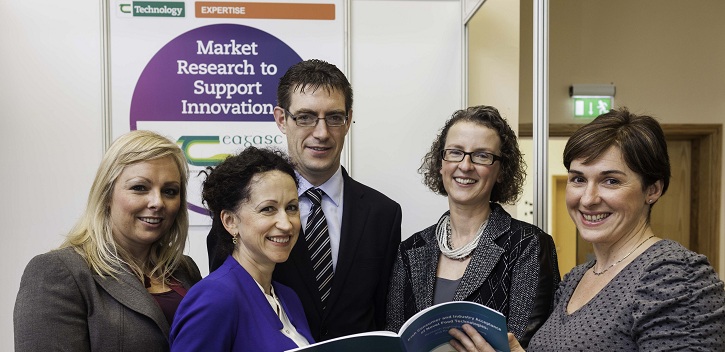2013 Press Releases
Will consumers accept new food technologies?

How do consumers balance the scales between promised benefits and potential risks from novel food technologies?
This was one of the research questions examined by a team of Irish researchers investigating consumer and industry acceptance of novel food technologies (NFTs)[1].
Investment by the Irish government as well as the EU in novel food technologies is essential as such technologies will help in delivering solutions to long-term challenges in society such as climate change and a growing world population. However lessons learned from GM means that consumer acceptance of such technologies cannot be taken for granted, and needs to be managed through effective engagement. This requires greater understanding of consumers’ knowledge, attitudes and behaviour.
A new report on the research undertaken by Teagasc, UCC and the Dublin Institute of Technology was launched at a Teagasc Food Innovation Gateways event in Ashtown, Dublin, today, Tuesday, 22 October. The report identifies the complexities in how consumers form attitudes to novel food technologies. This complexity is demonstrated by the fact that consumers who accept one technology may not necessarily accept another technology, and even acceptance of one application of a technology does not imply acceptance of another application of the same technology.
Consumers do not accept novel food technology applications on the basis of promised benefits alone. Thus this research identified how consumers’ traded-off benefits (including lower price) for potential perceived risks associated with such technologies. In general consumers were more accepting of novel technology if they perceived the associated personal and societal benefits to outweigh potential risks. However awareness and understanding of many novel technologies (such as nano-technology) is limited and the majority of people are not particularly motivated to assess the pros and cons and thus make evaluation on gut feelings and instinct. Many consumers turn to regulatory authorities, such as the Food Safety Authority of Ireland, and trust that such agencies can ensure that products available on the market are safe.
Acceptance of foods produced using these technologies was also found to be influenced by many additional interrelated factors. The application of the technology was important with consumers displaying a “hierarchy of approval”. Speaking in Dublin today, Dr Maeve Henchion, Project Coordinator said;” Demographic factors, such as family status, and subjective values such as perceived naturalness and personal control, attitude to nature and technological progress and trust in stakeholders, framed consumers’ overall attitudes towards the specific technology.”
Clearly there are significant challenges for policy makers, regulatory authorities, researchers, and indeed industry, in effectively engaging with consumers to balance the challenge of using technologies to provide food that is acceptable to consumers, that contributes to solving societal/global issues and provides returns to tax-payers for their investments in research and development.
Project information:
Project Coordinator: Dr Maeve Henchion, Teagasc
Research Team: Dr Mary McCarthy (UCC), Dr Gwilym Williams (DIT), Dr Sinéad McCarthy (Teagasc), Dr Emma Dillon (Teagasc), Ms Gráinne Greehy (UCC) and Ms Gráinne Kavanagh (Teagasc and DIT)
This FIRM (Food Institutional Research Measure) project is funded through the Department of Agriculture, Food and the Marine under the National Development Plan 2007-2013.
[1] New technologies for food production can be described as scientific and technological developments that alter the way food is produced and processed and may or may not result in differentiated products for consumers. The technologies addressed in this research include nanotechnology, GM, invitro meat, functional foods, thermal and non-thermal process technologies, irradiated foods and nutrigemomics.
